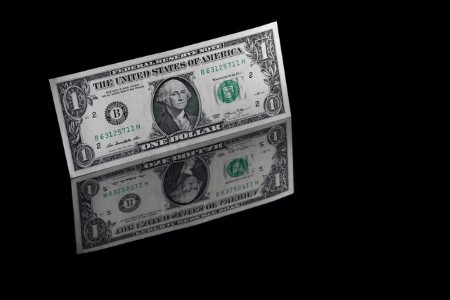




Quarterly Economic Growth Release: More BSP cuts to come
 DOWNLOAD
DOWNLOAD

Monthly Economic Update: Fed catches up
 DOWNLOAD
DOWNLOAD

Inflation Update: Steady and mellow
 DOWNLOAD
DOWNLOAD


US Treasury yields mixed as investors wait for payrolls

NEW YORK – US Treasury yields were mixed on Thursday, with those on the front end of the curve trading higher, as investors looked ahead to Friday’s nonfarm payrolls report that could help determine the pace of the Federal Reserve’s current easing cycle.
The two-year US Treasury yield, which typically moves in step with interest rate expectations, rose 2.7 basis points to 4.148%. The yield on benchmark 10-year Treasury note reversed early gains and fell 0.6 basis points to 4.176% after the jobless claims report released on Thursday.
Markets slightly reduced the odds of a 25-basis point rate cut in this month’s meeting. CME’s FedWatch tool showed on Thursday a 70% chance of a December rate cut, lower than the 75% chance late on Wednesday.
The number of Americans filing new applications for unemployment benefits increased moderately last week, suggesting the labor market continued to steadily cool. Initial claims for state unemployment benefits rose 9,000 to a seasonally adjusted 224,000 for the week ended Nov. 30, the Labor Department said on Thursday. Economists polled by Reuters had forecast 215,000 claims for the latest week.
“Jobless claims were much ado about nothing; even with the 9,000 bump in the most recent filing week, claims remain at a very low level”, said Jason Ware, chief investment officer and chief economist at Albion Financial Group in Salt Lake City.
Markets are now shifting focus to data that can show a clearer picture of the job market, the nonfarm payrolls expected for Friday morning. Next week will have inflation indexes ahead of the December 17-18 Federal Reserve meeting.
“Between now and the meeting, there’s so much economic data, the payrolls on Friday, CPI and PPI next week, markets will look at the numbers as crucial to (the) Fed’s decision,” said Mike Lorizio, senior fixed income trader at Manulife Investment Management in Boston. Albion’s Ware thinks the labor market data are more important now to the Fed’s decision than the inflation data.
Fed Chair Jerome Powell appeared to signal on Wednesday support for a slower pace of rate cuts ahead, when he said the economy was stronger at this point than the central bank had expected in September. San Francisco Fed President Mary Daly added there was “no sense of urgency” on reducing borrowing costs further.
The breakeven rate on 10-year US Treasury Inflation-Protected Securities (TIPS) was last at 2.271%, indicating the market sees inflation averaging about 2.3% a year for the next decade.
(Reporting by Tatiana Bautzer; Editing by Jonathan Oatis and Diane Craft)
This article originally appeared on reuters.com





 By Reuters
By Reuters